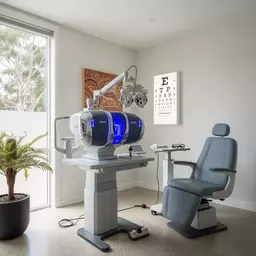Preparing for Laser Eye Surgery

Choosing laser eye surgery can be a life-altering decision for many. As you embark on this journey, understanding the intricacies can significantly enhance your experience and outcomes. Here’s what you will uncover about this transformative procedure.
What You Will Learn
- Laser eye surgery corrects refractive vision issues by reshaping the cornea, improving visual clarity.
- Common procedures include LASIK, PRK, and SMILE, each offering unique benefits and approaches.
- Benefits of the surgery include reduced dependency on glasses, quick recovery times, and long-lasting results.
- Technological advancements, like wavefront technology, increase the precision and safety of laser eye surgeries.
- Eligibility criteria include age, vision stability, and overall eye health, making thorough evaluations essential.
- Pre-operative preparation and lifestyle adjustments can greatly influence the success of your surgery.
Laser Eye Surgery: Key Aspects & Benefits
This visual highlights the critical elements of laser eye surgery, from procedure types to eligibility criteria and significant benefits.
What is Laser Eye Surgery?
Reshapes the cornea to correct refractive errors. Types include LASIK (flap created), PRK (outer layer removed), and SMILE (minimally invasive lenticule removal).
Learn More →Benefits & Transformation
- Freedom from glasses/contacts.
- Immediate vision improvement.
- Quick recovery, long-lasting results.
- Minimal discomfort.
Technology Advancements
- Wavefront technology for precision.
- Femtosecond lasers for accurate cuts.
- Custom ablation for personalized treatment.
- Enhanced safety measures.
Eligibility Criteria
- Typically 18+ years old.
- Stable vision prescription (1+ year).
- Good overall eye health (no cataracts/severe dry eyes).
- Thorough evaluation needed.
Pre-operative Preparation
- Initial consultation and eye exam.
- Pre-operative testing (refraction, corneal topography).
- Avoid contacts, makeup, alcohol before surgery.
- Follow medication/instruction guidelines.
Understanding Laser Eye Surgery: An Overview
Laser eye surgery is a popular solution for many people looking to enhance their vision. At VisionCost Insights, we aim to provide you with a comprehensive understanding of this procedure, including what it entails and its many benefits. So, what exactly is laser eye surgery?
What is Laser Eye Surgery?
Laser eye surgery refers to a variety of procedures that use lasers to correct refractive vision issues, such as nearsightedness, farsightedness, and astigmatism. These surgeries aim to reshape the cornea, allowing light to focus correctly on the retina, thus improving visual clarity. The most common types include LASIK, PRK, and SMILE, each with its unique approach and benefits. For a deeper dive into the different options, explore laser eye surgery types explained.
- LASIK: A flap is created in the cornea, and a laser reshapes the underlying tissue.
- PRK: The outer layer of the cornea is removed before reshaping the cornea with a laser.
- SMILE: A minimally invasive technique that creates a small lenticule to be removed without creating a corneal flap.
By understanding the different types of laser eye surgery, you can decide which procedure might be right for you. It's crucial to consult with a professional like me, Dr. Elara Thompson, to discuss your specific vision needs.
Benefits of Choosing Laser Eye Surgery
Choosing laser eye surgery comes with a range of benefits that can significantly enhance your quality of life. Firstly, it can reduce or eliminate the need for glasses or contact lenses, providing you with the freedom to enjoy daily activities without visual aids. Moreover, many patients experience immediate improvements in their vision, often seeing results the very same day.
- Quick Recovery: Most patients can return to normal activities within a day or two.
- Long-lasting Results: Many enjoy clear vision for years after surgery.
- Minimal Discomfort: With advancements in technology, procedures are less invasive and more comfortable than ever.
These benefits make laser eye surgery an attractive option for those seeking vision correction. However, it’s essential to weigh these advantages against your personal circumstances and discuss any concerns with your eye care professional.
Technology Advancements in Laser Eye Surgery
The field of laser eye surgery has advanced significantly over the years, thanks to innovations in technology. Modern laser systems are equipped with state-of-the-art features that enhance the precision and efficacy of the procedures. For instance, wavefront technology allows surgeons to map the eye's unique imperfections, tailoring the treatment specifically to each patient. To understand all the factors affecting laser eye surgery cost, it's helpful to consider these technological advancements.
- Femtosecond Lasers: Offer more precise cuts during LASIK procedures, reducing recovery time.
- Custom Ablation Techniques: Allow for personalized treatment that can address specific visual impairments.
- Enhanced Safety Measures: Improved monitoring during the procedure ensures patient safety and comfort.
These technological advancements not only improve surgical outcomes but also increase patient satisfaction. At VisionCost Insights, I believe it’s vital to stay updated on these developments to provide you with the best advice and options available.
Eligibility Criteria for Laser Eye Surgery Candidates
Not everyone is a suitable candidate for laser eye surgery, which is why undergoing a thorough evaluation is essential. General eligibility criteria often include age, overall eye health, and the stability of your vision prescription. Here are some key factors to consider:
- Age: Candidates should typically be at least 18 years old.
- Stable Vision: A stable prescription for at least one year is preferred.
- Eye Health: Conditions like cataracts or severe dry eyes may disqualify patients.
Before proceeding, I recommend scheduling a comprehensive eye exam to determine your candidacy and discuss any specific questions you might have. Remember, your safety and satisfaction are my top priorities!
We Want to Hear From You!
What concerns do you have about laser eye surgery? Share your thoughts below:
Preparing for Your Laser Eye Surgery Journey
When it comes to laser eye surgery, preparation is key! As someone who has navigated this journey with many patients, I can tell you that being well-prepared can make all the difference. From understanding what to expect during your initial consultation to making necessary lifestyle adjustments, let's break down the essential pre-operative steps that will set you up for success.
Essential Pre-op Checklist for Laser Eye Surgery
Your pre-op checklist is a vital tool to ensure you're fully prepared for laser eye surgery. Here’s what you should focus on:
- Schedule your initial consultation with a qualified surgeon.
- Get a comprehensive eye exam to assess your overall eye health.
- Discuss your medical history and any medications you are taking.
- Understand the different types of laser eye surgery available.
By following this checklist, you’ll gain clarity on your options and create a solid foundation for your upcoming procedure.
Consultation and Eye Exam Details
Your journey begins with a thorough consultation and eye exam. During this time, I recommend being open and honest about your vision goals and any concerns you may have. This conversation is crucial because it helps us determine which laser eye surgery is best for you. The exam will include various tests to evaluate your eyesight, corneal thickness, and overall eye health.
Pre-operative Testing for Optimal Outcomes
Pre-operative testing is essential to ensure the best possible outcomes from your surgery. Common tests include:
- Refraction tests to measure your prescription.
- Pupil dilation to examine the retina.
- Corneal topography to map the surface of your eye.
These tests allow us to tailor the surgical plan to your specific needs, leading to a smoother recovery process.
Lifestyle Adjustments: What to Avoid Before Surgery
Making some lifestyle adjustments in the days leading up to your surgery can significantly improve your experience. Here are a few things to consider avoiding:
- Wearing contact lenses for at least a week prior to your surgery.
- Avoiding makeup or creams around your eyes.
- Steering clear of alcohol and smoking.
These adjustments can help ensure your eyes are in the best condition possible, paving the way for successful surgery.
Medications and Pre-operative Instructions
Lastly, it’s crucial to follow any specific medications and pre-operative instructions provided by your surgeon. Some common guidelines include:
- Stopping certain medications that may increase bleeding.
- Using prescribed eye drops to prepare your eyes.
- Arranging for someone to drive you to and from the clinic.
Following these instructions helps create a seamless experience on the day of your surgery. Remember, being prepared sets you up for success!
Recap of Key Points
Here is a quick recap of the important points discussed in the article:
- Types of Laser Eye Surgery: Understand the differences between LASIK, PRK, and SMILE procedures.
- Benefits: Experience quick recovery, long-lasting results, and minimal discomfort after surgery.
- Technological Advancements: Modern laser systems enhance precision and safety in eye surgeries.
- Eligibility Criteria: Ensure you meet age, vision stability, and eye health requirements for surgery.
- Pre-operative Preparation: Follow a checklist that includes consultations, eye exams, and lifestyle adjustments.
Frequently Asked Questions About Laser Eye Surgery
What is laser eye surgery and what does it correct?
Laser eye surgery reshapes the cornea to correct refractive errors like nearsightedness, farsightedness, and astigmatism, improving visual clarity.
What are the common types of laser eye surgery?
The most common types are LASIK (creates a corneal flap), PRK (removes the outer corneal layer), and SMILE (minimally invasive lenticule removal).
What are the main benefits of laser eye surgery?
Key benefits include reduced dependency on glasses or contacts, immediate vision improvement, quick recovery times, long-lasting results, and minimal discomfort.
How do technological advancements improve laser eye surgery?
Advancements like wavefront technology, femtosecond lasers, and custom ablation techniques enhance precision, safety, and personalized treatment, leading to better outcomes.
Who is a suitable candidate for laser eye surgery?
Candidates are typically at least 18 years old, have a stable vision prescription for at least a year, and possess good overall eye health (without conditions like cataracts or severe dry eyes). A thorough evaluation is essential.
What is involved in preparing for laser eye surgery?
Preparation includes an initial consultation, comprehensive eye exam, pre-operative testing (refraction, corneal topography), avoiding contact lenses and makeup before surgery, and following specific medication and post-operative instructions. For a comprehensive guide on preparing for laser eye surgery, consult our detailed checklist.









